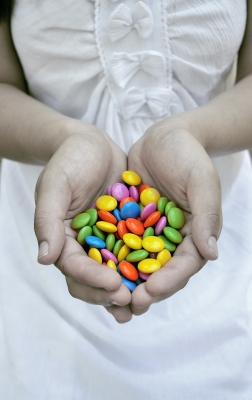 A core tool that we use in ABA is positive reinforcement. It’s one of the best ways to shape better behaviour! Yet, plenty of people confuse it with giving bribes and, as such, are quick to dismiss it. Let’s clear the air, so we’re all on the same page. Bribery is not a synonym for reinforcement! Here’s our take on how the two differ.
A core tool that we use in ABA is positive reinforcement. It’s one of the best ways to shape better behaviour! Yet, plenty of people confuse it with giving bribes and, as such, are quick to dismiss it. Let’s clear the air, so we’re all on the same page. Bribery is not a synonym for reinforcement! Here’s our take on how the two differ.
Reinforcement VS Bribery
The only thing they have in common is that your child has the chance to access something he really likes, be it tickles, toffee or toys. Otherwise, reinforcement and bribes have key differences that set them far apart.
Difference 1: Timing
Reinforcement is given AFTER a desired behaviour or action occurs. It works on the if-then system. For example, if Nicky stays calm and quiet while you shop at the grocery store, then he can have a cookie or sticker when the food is paid for. (This agreement should be in writing so he’s clear on the expectations.) Nicky only gets the reward if he successfully completes the task; if he cries and yells in the produce aisle, no treat for him.
In contrast, a bribe is generally dished out BEFORE your kiddo does what you want him to do. Let’s say Nicky begs you to go skating. You agree to take him at noon providing he promises to eat all his Brussels sprouts at dinner. After an afternoon of fun, he completely forgets his vow and, like always, is tight-lipped with the Brussels sprouts. Bribes can also occur WHEN a problem action or behaviour is taking place, such as Nancy having a tantrum at the mall. In an attempt to stop her flailing and screaming, you might say: “Calm down and I’ll give you a candy.” Then you unwrap a lollipop and pop it in her mouth the moment she’s quiet.
Difference 2: Outcome
Reinforcement increases the future likelihood of a behaviour or skill. Give Nancy a gold star sticker or Goldfish cracker – something that’s highly motivating to her – and a “yahoo!” after she pees in the potty and she’ll probably go wee there again. The little reward and your praise help her feel good about going to the toilet; we all want to do the things that feel nice over and over. This is an example of the positive reinforcement we use daily with clients to shape better behaviour and skills. It’s super effective!
Bribery, on the other hand, doesn’t encourage a good behaviour or skill to happen again. When the reward is issued before your kiddo carries out his assigned task, chances are he won’t do what you asked of him. Nicky already got to go skating, so there’s little incentive for him to eat his least favourite veggie, Brussels sprouts.
If the treat is given when Nancy is acting out – she gets a candy for quieting down her tantrum – then she’s probably going to start wailing again. Why? Because this bribe reinforces the naughty behaviour; she now associates screaming at the mall with getting a yummy reward.
Want to know more? Check out Behaviorbabe’s and Gary Direnfeld’s articles.
Image by usamedeniz at FreeDigitalPhotos.net
